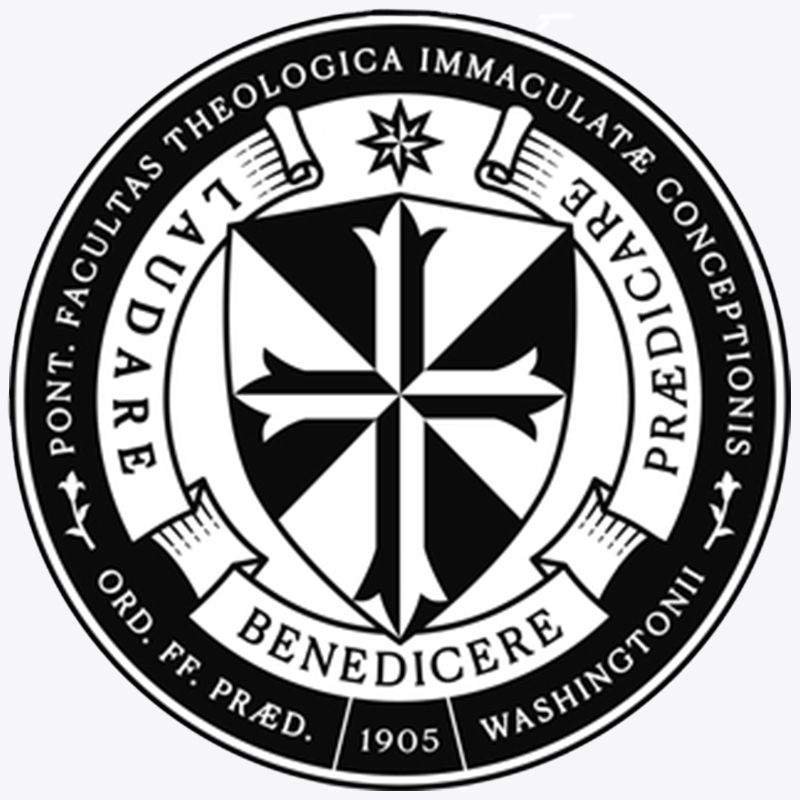Scholarships
Graduate Studies
Study for a Graduate Degree in Theology with a TI Scholarship
The Thomistic Institute offers full-ride scholarships for the following graduate degrees in Theology at the Dominican House of Studies (DHS): Master of Arts in Theology, Licentiate in Sacred Theology in Thomistic Studies (STL), Doctorate in Sacred Theology in Thomistic Studies (STD), and Doctorate in Theology in Thomistic Studies (PhD).
What does a TI scholarship entail?
- Full tuition
- A living stipend of $20,000 per academic year
- Additional funds to cover academic fees & books
Scholarship awardees work up to 8 hours per week on research projects for the DHS faculty, or on Thomistic Institute projects with the TI staff.
Review our scholarship opportunities below. Note that your application to the degree program at the DHS must be completed separately. To be considered for the TI scholarship, you must submit both your scholarship application and degree application by the scholarship deadlines outlined below.*
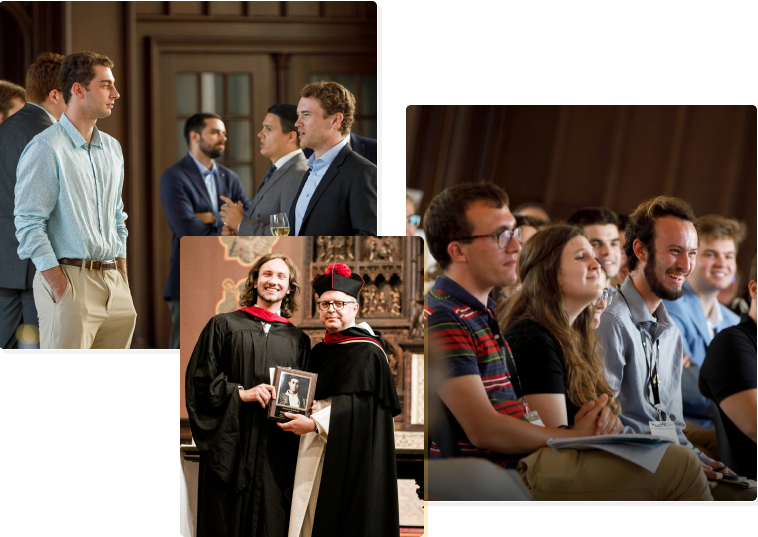
SCHOLARSHIP FOR MASTER OF ARTS IN THEOLOGY
Apply by January 28, 2026
A two-year program of theology in the Thomistic tradition, introduced in 1993 to better serve laypersons interested in further theological study or service to the Church. The program provides formation in the thought of Thomas Aquinas’ philosophy and theology, as well as a deep engagement with key texts in patristic and modern theology.
The program has a strong record for placing M.A. graduates in the highest-ranked Ph.D. programs in theology, as well as in teaching roles at private Catholic secondary schools and in parish work or Catholic nonprofits.
Both your scholarship application and your degree program application must be submitted by the January 28 deadline.
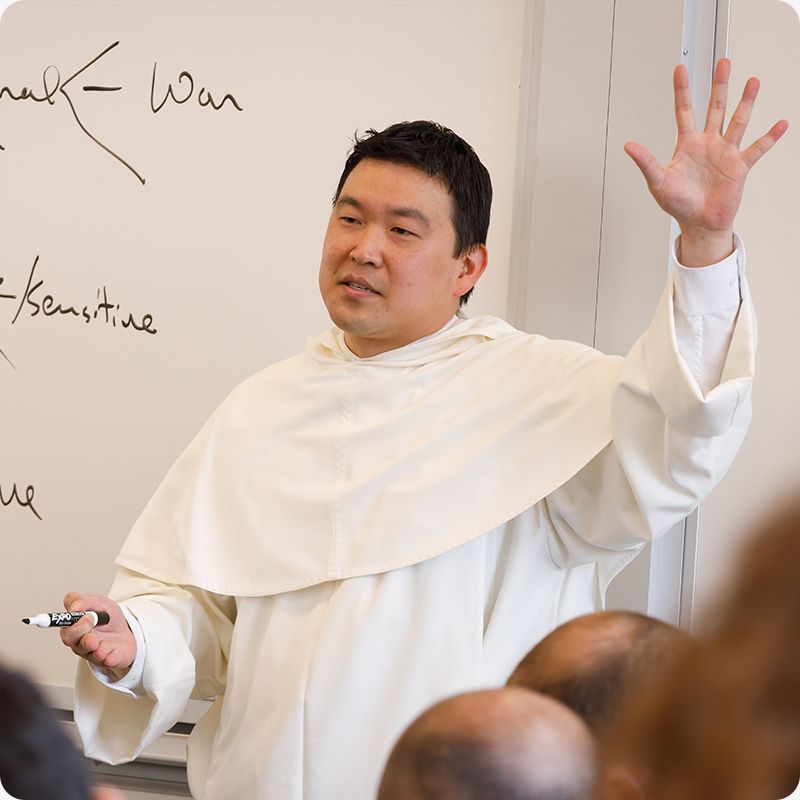
SCHOLARSHIP FOR LICENTIATE IN SACRED THEOLOGY IN THOMISTIC STUDIES (STL)**
Apply by January 28, 2026
The universally-required degree for advancement to doctoral studies in an ecclesiastical faculty. A canonical degree required for professors who will teach in ecclesiastical faculties, such as any major seminary. This program requires that students have previously obtained a Bachelor of Sacred Theology (STB). Students will compose a License thesis that prepares them directly for an ecclesiastical doctorate.
This program entails graduate seminars and seeks to initiate students into the study of Thomistic thought on several fronts that can become the basis for thesis research including: Major Themes in Classical Thomistic Philosophy, Dogmatic and Moral Theology, The Modern Thomistic Tradition within the context of Post-Enlightenment Theology, The Study of Aquinas in Historical Context and Historical Methods for the Study of Medieval Theology.
Both your scholarship application and your degree program application must be submitted by the January 28 deadline.
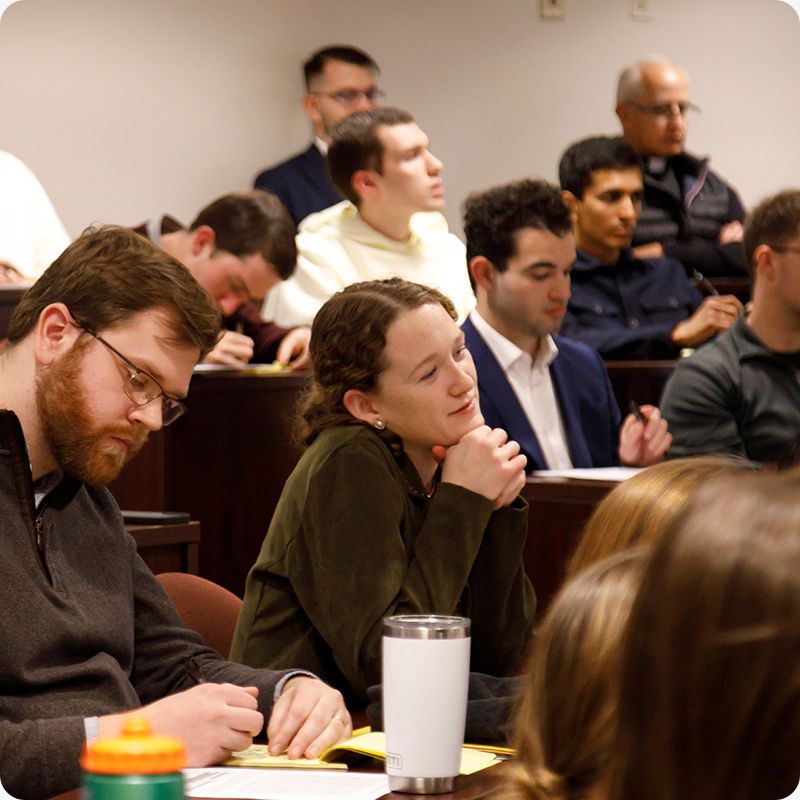
SCHOLARSHIP FOR DOCTORATE IN SACRED THEOLOGY IN THOMISTIC STUDIES (STD)**
Apply by January 8, 2026
A specialized degree program in Thomistic studies. This program offers a terminal degree (the ecclesiastical doctorate) that is granted by the authority and in the name of the Holy See. Candidates may specialize either in the domain of Thomistic systematic theology or Thomistic moral theology.
Applicants must have previously obtained an STL to be considered for the STD.
Both your scholarship application and your degree program application must be submitted by the January 8 deadline.
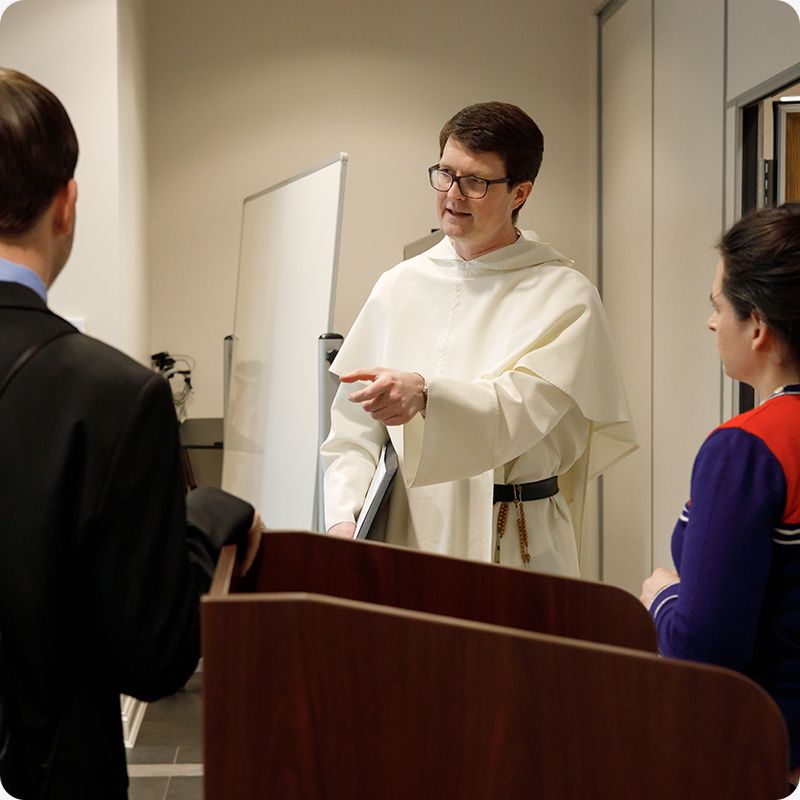
SCHOLARSHIP FOR DOCTORATE IN THEOLOGY IN THOMISTIC STUDIES (PhD)
Apply by January 8, 2026
Thomistic theology has been perennially important since the Common Doctor’s lifetime. The Dominican House of Studies has launched a new PhD program that will sustain and advance Thomistic scholarship and teaching at the highest levels. The PhD in Theology (Thomistic Studies) program helps students to develop a comprehensive understanding of theology according to the mind of St. Thomas Aquinas, with attention to his sources, historical context, later development in the Thomistic tradition, and applicability for the questions and needs of today. Students may specialize in Thomistic dogmatic theology or moral theology, although both will be expected for coursework and comprehensive examinations.
The TI will provide up to four years of funding. If a fifth year of funding is needed, the student can apply for a one-year extension.
Both your scholarship application and your degree program application must be submitted by the January 8 deadline.
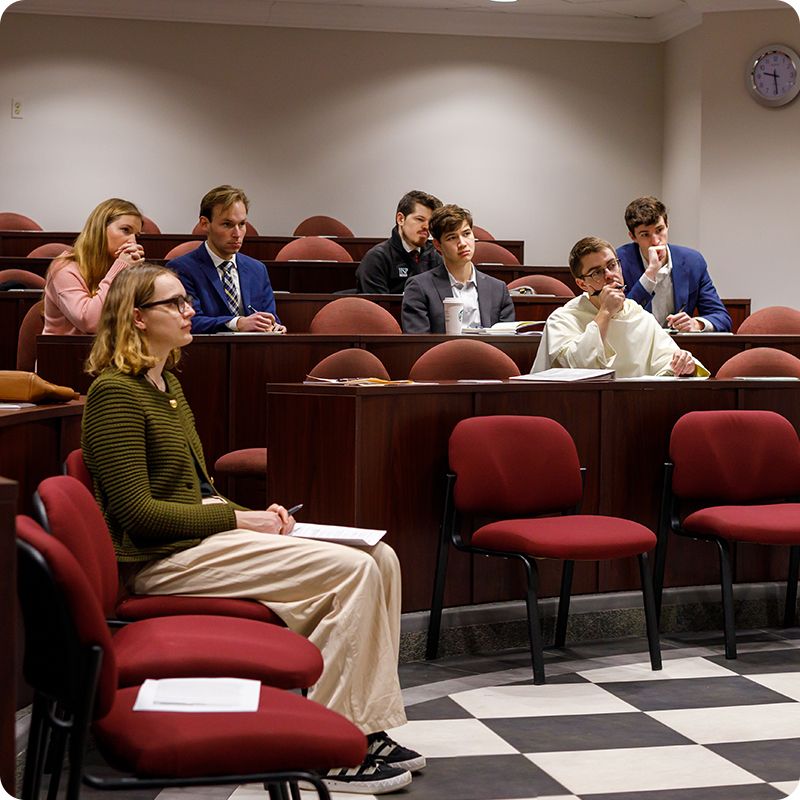
What is the DHS?
The Thomistic Institute is an academic institute of the Pontifical Faculty of the Dominican House of Studies in Washington, D.C. The DHS provides a theological education for those intending to serve as ministers in the Dominican Order and other qualified students interested in this unique formation. Under the instruction of the Dominican friars, students follow a rigorous curriculum centered on the synthesis of the Catholic intellectual tradition found in the works of St. Thomas Aquinas.
To learn more about degree programs aligned with TI scholarships, you can find the corresponding programs on the DHS website below.
